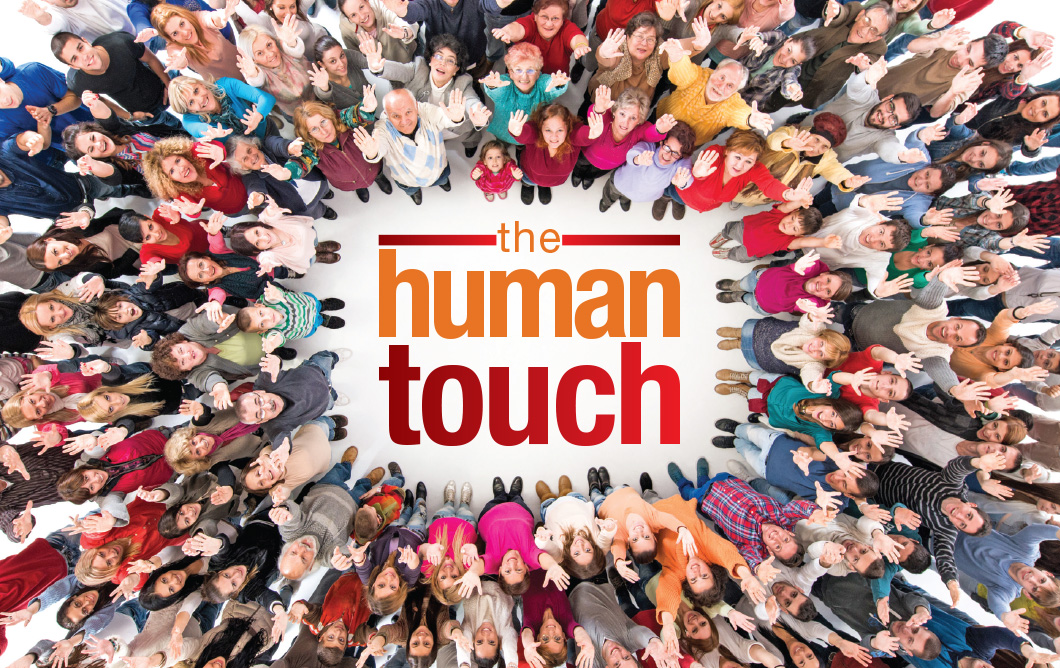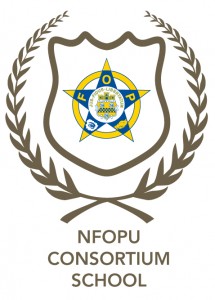
Criminal justice degrees emphasizing human services can help officers help others.
As a public servant, you regularly come in contact with a variety of people — witnesses and victims of every age as well as offenders. Each encounter presents unique circumstances that call for situational-specific responses. Traditional training emphasizes the legal, safety and tactical parameters of a scenario, but what about the human behavior aspect? “Without the human services component, you are at a disadvantage — 99.9% [of what we do] involves people,” says Dan Barry, a retired law enforcement officer who chairs the Criminal Justice and Security program (which includes the option for a human services concentration in its B.S. in Criminal Justice Administration degree) at the University of Phoenix’s Las Vegas campus.
Many members of law enforcement are attracted to the profession specifically because they want to have a positive impact on people’s lives. And the expectations on officers to address issues of community policing, mental illness, homelessness, domestic violence and juvenile justice are greater than ever. In response, more and more criminal justice degree programs are offering a human services concentration for a holistic approach to policing. Whether you’re interested in honing your people skills in your existing position or transitioning to a specialized field like child welfare or victim advocacy, pursuing higher education in this area can better equip you to answer the call for help.
 WALDEN UNIVERSITY
WALDEN UNIVERSITYDEGREE: Bachelor of Science in Criminal Justice: Human Services for Criminal Justice
COURSE SAMPLING: Restorative Justice; Mobilizing and Coordinating Community Response; Victimology
KEY COMPONENTS: Walden’s human services concentration arms students with the power to advocate for victims and juveniles by learning to assess needs and identify community resources as well as studying trends, such as restorative justice strategies.
FACULTY INSIGHT: “What makes us different is our mission statement of making positive social change, and we incorporate that into the curriculum. For capstone projects, we encourage students not just to summarize their experience, but also how they will apply what they learned to their daily lives.” — Kimberley Blackmon, Ph.D., Criminal Justice program director
DEGREE: Bachelor of Science in Criminal Justice, Human Services Concentration
COURSE SAMPLING: Communication Skills for Human Service Professionals; Family and Community Systems; Ethics and Laws in Child Welfare
KEY COMPONENTS: Coursework for this online degree helps students learn skills to manage crises, identify the impact of trauma and spearhead coordination with other agencies.
FACULTY INSIGHT: “We have a responsibility to give victims the help they need and we need to build relationships to improve [community policing].” — Sheryl Victorian, Ph.D., adjunct professor and assistant chief of the Houston Police Department
DEGREE: Bachelor of Science in Child Protection and Juvenile Justice
COURSE SAMPLING: Interviewing and Negotiating; Victimology and Trauma; Freedom and Responsibility
KEY COMPONENTS: Offered online only, courses for this accelerated degree are divided into sequential cohorts to advance skill sets. Lessons examine adolescent welfare and juvenile justice, psychological disorders affecting young people, and the complexity of family dynamics.
FACULTY INSIGHT: “For law enforcement officers who work in schools, such as resource officers, this would be an ideal degree. Courses discuss how to confront adolescents under the influence of drugs or with mental illness.” — David Hoppe, assistant professor and program director
DEGREE: Master of Art in Human Services, Criminal Justice & Ministry
COURSE SAMPLING: Helping Skills & Techniques; Multicultural Awareness & Individual Diversity; International Trafficking in Persons
KEY COMPONENTS: A partnership between the School of Psychology & Counseling and the Regent University School of Law, this master’s degree addresses pertinent topics in law enforcement today. Each course runs eight weeks, often including small-group projects, podcast lectures and asynchronous chatroom discussions.
FACULTY INSIGHT: “Even if topics aren’t ministry-specific, such as criminal justice, our core classes in human services do have integrated components. You’re studying the specifics, but we’re also talking about ways on how to enhance that from a ministry perspective.” — Amy Trout, Psy.D., associate professor and Human Services program director
DEGREE: Master of Science in Juvenile Justice
COURSE SAMPLING: Leaders at National University are restructuring the curriculum, with input from juvenile probation departments, for this advanced degree. Starting in spring 2019, courses will reflect restoration and other proven practices to prevent juveniles from becoming adult offenders.
KEY COMPONENTS: National University awards students with credit for classes completed at the police academy and general education units from community colleges to reduce the time needed in the classroom.
FACULTY INSIGHT: “We’re looking at ways to educate people with a look at juvenile offenders from a broader, holistic view rather than just an offender in an incident.” — Jack Hamlin, J.D., professor and Criminal Justice department chair
 DEGREE: Bachelor of Science in Criminal Justice Administration, Human Services for Criminal Justice Concentration
DEGREE: Bachelor of Science in Criminal Justice Administration, Human Services for Criminal Justice Concentration
COURSE SAMPLING: Mental Health and Crisis Intervention in Criminal Justice; Case Management and Services Provided in Criminal Justice; Collaborative Services in Criminal Justice
KEY COMPONENTS: Enrollees gain an in-depth knowledge of theories and principles. Plus, the curriculum and faculty challenge students to exercise leadership and managerial skills typically required for career advancement.
FACULTY INSIGHT: “I love teaching communication. How we communicate isn’t necessarily just about the words we use, but how we say them and how they come across to others.” — Dan Barry, Criminal Justice and Security program chair, Las Vegas Campus
 DEGREE: Master of Art in Human Services Counseling, Criminal Justice
DEGREE: Master of Art in Human Services Counseling, Criminal Justice
COURSE SAMPLING: Human Growth & Development; Studies in Interpersonal Communication; Group Dynamics
KEY COMPONENTS: Students gain a comprehensive perspective of how behavioral sciences complement criminal justice practices with real-world examples illustrating principles in counseling and mental health.
FACULTY INSIGHT: “Law enforcement and military personnel have gravitated to this degree. They appreciate that the core counseling classes give them a higher set of people skills … and insight into mental health issues at the practical level.” — Scott Hawkins, Ph.D., MA Human Services director
Click here to read more faculty insights on how human services degrees in criminal justice can benefit officers.
For more programs, along with faculty insights on how human services degrees in criminal justice can benefit officers, visit fopconnect.com/education-connect.

See this story in the Winter 2018 FOP Journal issue.




